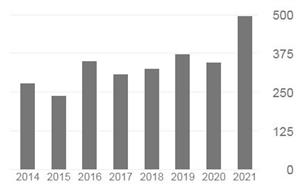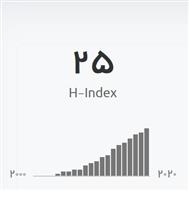Effect of Acidic Environment on the Push-out Bond Strength of Mineral Trioxide Aggregate
Reduced surface microhardness and decreased sealing ability have been shown after the placement of mineral trioxide aggregate (MTA) in an acidic environment. In this study, the effect of an acidic environment on the push-out strength of MTA was evaluated.
Methods: Eighty root dentin slices from freshly extracted single-rooted human teeth were sectioned and their lumen instrumented to achieve a diameter of 1.3 mm. One gram of tooth-colored ProRoot MTA (Dentsply Tulsa Dental, Johnson City, TN) was mixed with 0.33 g of distilled water and introduced into the canals of the root-dentin slices and treated with ultrasonic energy. The specimens were then randomly divided into four groups (n = 20) and wrapped in pieces of gauze soaked in phosphate buffer saline solution (pH = 7.4) and butyric acid buffered at pH values of 4.4, 5.4, or 6.4, respectively. They were then incubated for 4 days at 37C. The push-out bond strengths were then measured using a universal testing machine. The slices were examined under a light microscope at 40 magnification to determine the nature of the bond failure. The data were analyzed using one-way analysis of variance and the Tamhane post hoc test. Results: The greatest mean push-out bond strength (7.28 2.28 MPa) was observed after exposure to a pH value of 7.4. The values decreased to 2.47 0.61 MPa after exposure to a pH value of 4.4. There were significant differences between the groups (p < 0.001). Inspection of the samples revealed the bond failure to be predominantly adhesive.
Conclusion: The force needed for displacement of MTA was significantly lower in samples stored at lower pH values. (J Endod 2010;36:871–874)














